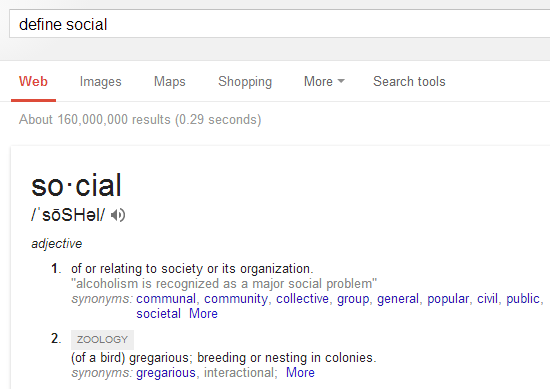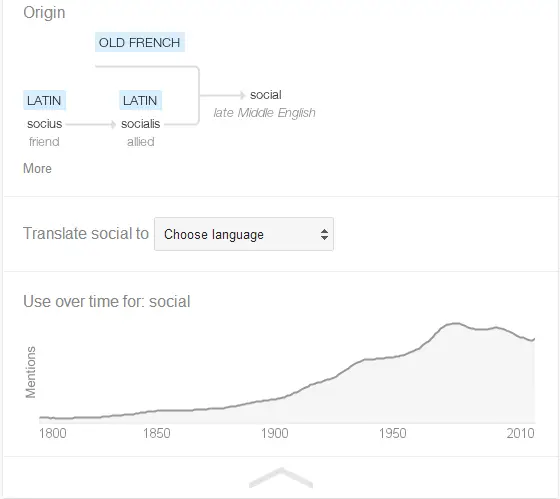Google recently upgraded its dictionary functionality, adding new features that provide much more information than just a word’s definition.
It’s an update that is much more minor than one of Google’s huge algorithm shakeups, but still proves quite useful for searchers looking to learn more about a particular word and its history.
The dictionary feature as a whole is triggered when with the query [define word], as below:
Below the end of the definitions, however, there is now an arrow that leads to the new features.
What you’ll see after clicking the arrow is etymology information that shows you in detail where the word came from, a graph tracking usage of the word over time, and an expanded translation feature.
Daniel Russell, a research scientist for Google, explained more on his SearchReSearch blog:
The word usage data comes from the NGram corpus (English words in books going back to the 1800s), and the etymological information comes from Oxford.
Now… If you tap the microphone when doing this search, you’ll hear answers spoken back when you ask questions like “What’s the definition of fortuitous?” and “What are synonyms for fortuitous?” Or “What is the etymology of water?”
You can also translate to one of many different languages, including translations of ALL the word senses.
Google seems to be unveiling more and more of these built-in features that perform some function automatically instead of pointing you to a list of search results.
One continuing challenge, however, is making sure users are aware of the variety of things they can do with the search engine.














Speak Your Mind